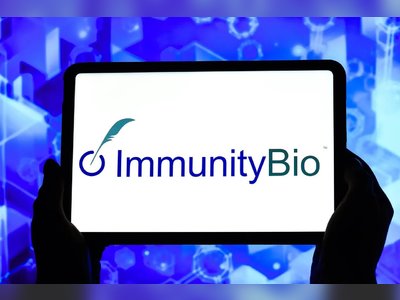A New Generation of Blood Tests
However, Becton Dickinson (BD), a medical supplies and diagnostics giant with 75 years of innovation, including the development of at-home Covid-19 testing kits during the height of the pandemic, claims to lead the next generation of blood tests.
The company asserts that its new technology can conduct blood tests at local sites like pharmacies using just a few blood drops. In an interview with Fast Company magazine, BD announced it had secured the necessary regulatory approvals from the U.S. Food and Drug Administration (FDA) and had established key pharmaceutical partnerships, confirming the legitimacy of its new technology beyond doubt.
BD secured FDA clearance late last year for two new devices as part of its BD MiniDraw Capillary Blood Collection System for drawing blood from capillaries. The system, as the name suggests, extracts blood at a capillary level instead of using traditional large tubes that draw blood from arteries. According to Dave Hickey, President of Life Sciences at BD, the devices can perform a variety of chemical and molecular analyses using between 16 to 18 drops of blood.
While the technology itself merits attention for its ease of use, its more profound impact lies in widening access to vital medical information contained within a patient's veins. The technology allows local pharmacists to perform regular blood draws without the need for a trained nurse or phlebotomist at a laboratory or hospital.
During an interview with Fast Company, Hickey revealed that he tried the new system himself, describing it as "simple and easy to use. I felt no pain the technology uses a special lancet that comes with the device. But what's most important is that it allowed collection of no more than 15 - 16 drops of blood in a matter of minutes at a non-specialized location."
Hickey explained that the devices are currently used for relatively simple analyses that require small amounts of blood for lipid testing, some chemical analyses, and hemoglobin checks. "We prioritized these tests because they are, of course, the most common," he said.
BD and its partners are working to expand the technology to include more complex molecular tests that rely on anticoagulation techniques, which could help conduct non-invasive analyses for diseases like cancer. The company stated that these tests are still under development, and no definitive timeline has been set for their completion.
Chemical and Molecular Blood Analysis Devices in Pharmacies
At-Home Testing
BD's long-term vision in the U.S. and globally is based on expanding blood analysis and what such an extension means for public health. The pandemic and the rise of telehealth have changed the dynamics of diagnostic testing; patients no longer prefer visiting health facilities or labs, nor do they wish to wait days or weeks for essential updates on their chronic illnesses or immediate health risks.
"More than 70 percent of medical decisions are based on laboratory test results. Yet many still cannot access this market, valued at over two billion dollars annually," Hickey revealed.
BD has partnered with Babson Diagnostics in Austin, Texas, to support its initial efforts with the MiniDraw technology. This partnership utilizes Babson's blood-based diagnostic techniques for test sample preparation, with both companies planning to roll out their services in pharmacies later this year.
Hickey noted that his company's new technology offers additional global opportunities, highlighting that the ability to conduct HIV testing at home in developing nations, avoiding the societal taboos of health facilities, could revolutionize the field.
Hickey says, "When we consider the rapid changes in patient expectations, telehealth, Covid, at-home testing, and personalized diagnostics for home use, we see no difference between them and blood sample collection. I believe patients will consistently want more enhanced experiences and access to medical services in their homes."
BD secured FDA clearance late last year for two new devices as part of its BD MiniDraw Capillary Blood Collection System for drawing blood from capillaries. The system, as the name suggests, extracts blood at a capillary level instead of using traditional large tubes that draw blood from arteries. According to Dave Hickey, President of Life Sciences at BD, the devices can perform a variety of chemical and molecular analyses using between 16 to 18 drops of blood.
While the technology itself merits attention for its ease of use, its more profound impact lies in widening access to vital medical information contained within a patient's veins. The technology allows local pharmacists to perform regular blood draws without the need for a trained nurse or phlebotomist at a laboratory or hospital.
During an interview with Fast Company, Hickey revealed that he tried the new system himself, describing it as "simple and easy to use. I felt no pain the technology uses a special lancet that comes with the device. But what's most important is that it allowed collection of no more than 15 - 16 drops of blood in a matter of minutes at a non-specialized location."
Hickey explained that the devices are currently used for relatively simple analyses that require small amounts of blood for lipid testing, some chemical analyses, and hemoglobin checks. "We prioritized these tests because they are, of course, the most common," he said.
BD and its partners are working to expand the technology to include more complex molecular tests that rely on anticoagulation techniques, which could help conduct non-invasive analyses for diseases like cancer. The company stated that these tests are still under development, and no definitive timeline has been set for their completion.
Chemical and Molecular Blood Analysis Devices in Pharmacies
At-Home Testing
BD's long-term vision in the U.S. and globally is based on expanding blood analysis and what such an extension means for public health. The pandemic and the rise of telehealth have changed the dynamics of diagnostic testing; patients no longer prefer visiting health facilities or labs, nor do they wish to wait days or weeks for essential updates on their chronic illnesses or immediate health risks.
"More than 70 percent of medical decisions are based on laboratory test results. Yet many still cannot access this market, valued at over two billion dollars annually," Hickey revealed.
BD has partnered with Babson Diagnostics in Austin, Texas, to support its initial efforts with the MiniDraw technology. This partnership utilizes Babson's blood-based diagnostic techniques for test sample preparation, with both companies planning to roll out their services in pharmacies later this year.
Hickey noted that his company's new technology offers additional global opportunities, highlighting that the ability to conduct HIV testing at home in developing nations, avoiding the societal taboos of health facilities, could revolutionize the field.
Hickey says, "When we consider the rapid changes in patient expectations, telehealth, Covid, at-home testing, and personalized diagnostics for home use, we see no difference between them and blood sample collection. I believe patients will consistently want more enhanced experiences and access to medical services in their homes."













